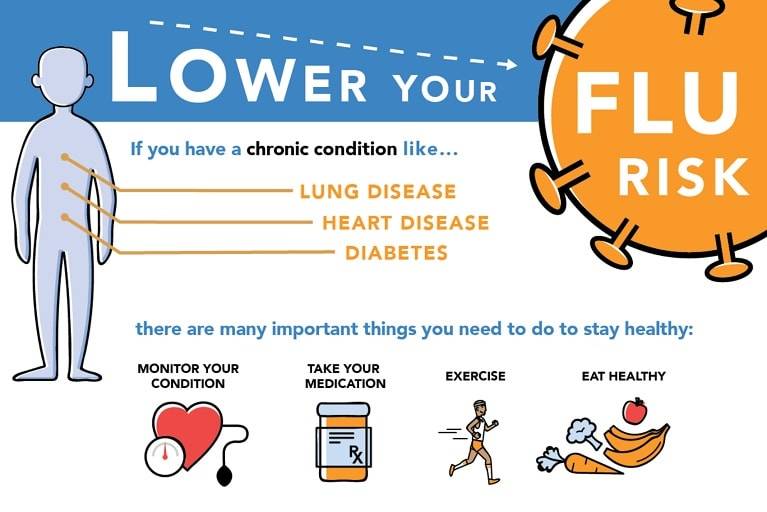Flu season arrives every year, bringing with it a contagious respiratory illness that affects millions. While the flu is often manageable, it can pose serious risks for certain individuals, including children, older adults, and people with chronic health conditions. Here's a comprehensive guide to understanding your risk and how to protect yourself during flu season.
What is the Flu?
Influenza, or the flu, is caused by influenza viruses that infect the respiratory tract, including the nose, throat, and lungs. Symptoms can range from mild to severe and include fever, cough, sore throat, muscle aches, fatigue, and sometimes vomiting or diarrhea. Most people recover in a week or two, but complications such as pneumonia can arise, particularly in high-risk groups.
Who is Most at Risk?
While anyone can contract the flu, some people are more likely to develop severe complications:
1. Older Adults (65+)
Age weakens the immune system, making it harder for older adults to fight off infections. Flu complications in this group can include pneumonia, dehydration, and heart issues.
2. Young Children
Children under five, especially those under two, are at higher risk due to their developing immune systems. Complications can include ear infections and bacterial co-infections
3. Pregnant Individuals
Pregnancy changes the immune system, heart, and lung function, increasing vulnerability to severe flu-related complications. Vaccination during pregnancy not only protects the mother but also the baby for months after birth.
4. People with Chronic Conditions
Conditions like asthma, diabetes, heart disease, and obesity increase the risk of flu complications. These individuals are more prone to severe respiratory issues and worsening of underlying health conditions. .
5. Residents of Nursing Homes
Flu spreads quickly in communal living settings, putting older adults and those with underlying health issues at greater risk.
How Does the Flu Spread?
The flu is highly contagious, spreading through droplets when an infected person coughs, sneezes, or talks. You can also catch the flu by touching a contaminated surface and then touching your mouth, nose, or eyes. People are most contagious in the first three days of illness.
Preventing the Flu
1. Get Vaccinated
- The annual flu vaccine is the most effective way to prevent infection. The CDC recommends everyone aged six months and older get vaccinated, ideally before the end of October
2. Practice Good Hygiene
- Wash hands regularly with soap and water.
- Avoid touching your face.
- Disinfect frequently touched surfaces like doorknobs and phones.
3. Stay Home When Sick
Resting at home when you’re unwell prevents spreading the virus to others, particularly those at higher risk.
4. Maintain Healthy Habits
- Get adequate sleep.
- Eat a balanced diet rich in vitamins to boost immunity.
- Exercise regularly to keep your immune system strong
When to Seek Medical Help
If you experience severe symptoms like difficulty breathing, persistent chest pain, confusion, or high fever that doesn’t improve, seek medical care immediately. Antiviral medications can reduce the severity and duration of illness when taken early.
Final Thoughts
Flu season is an annual challenge, but with the right precautions, you can minimize your risk and protect your loved ones. Vaccination, good hygiene, and healthy habits are your best defenses. If you're in a high-risk group, consider speaking to your doctor about additional protective measures.
Stay informed and proactive to make this flu season as safe as possible for you and your community.


